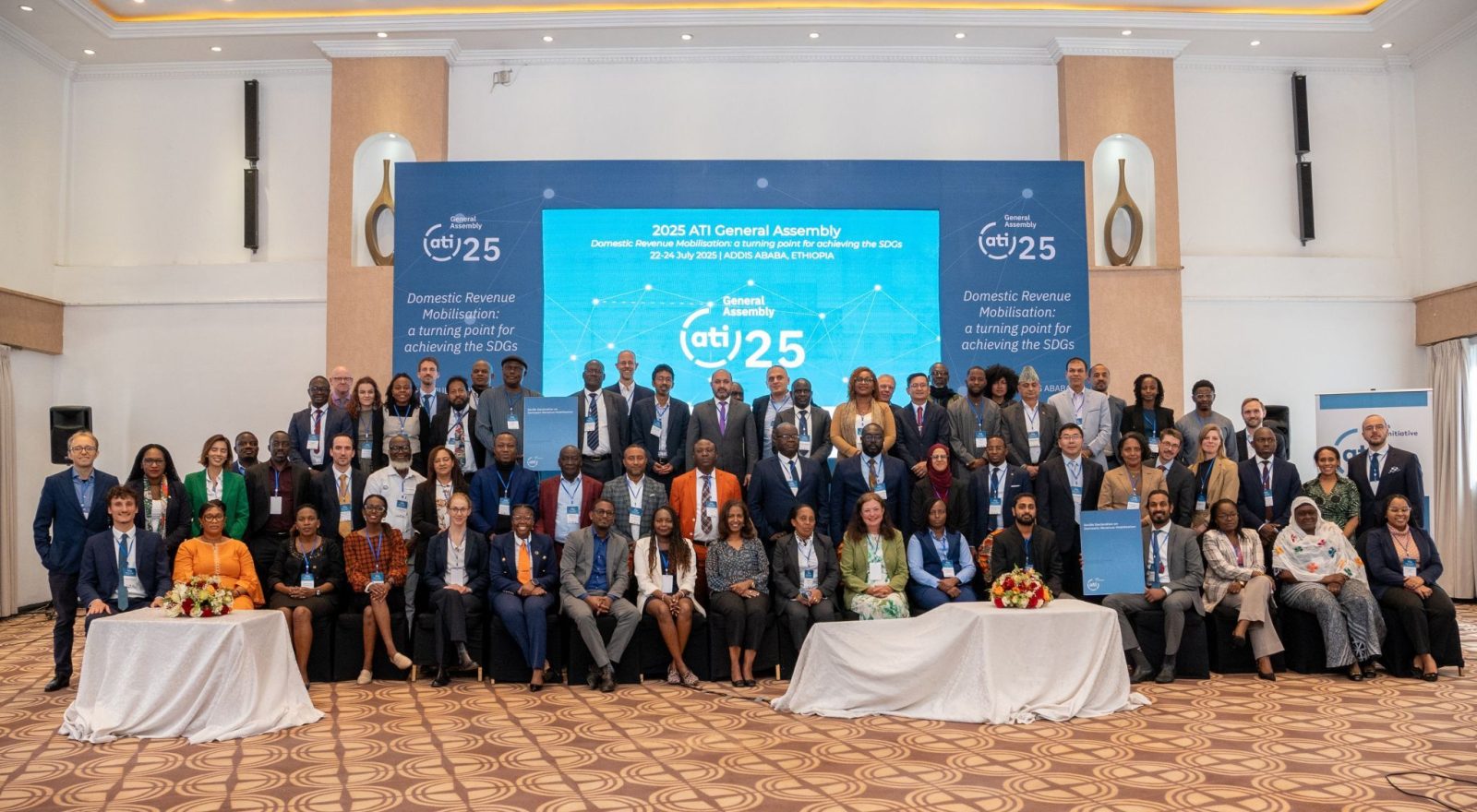From July 22-24, 2025 LoGRI Chair Dr. Wilson Prichard attended the 2025 Addis Tax Initiative (ATI) General Assembly in Addis Ababa, Ethiopia. Organized by the International Tax Compact (ICT), the event brought together over 100 in-person and online participants to mark the 10th anniversary of the ATI and to discuss the future of domestic revenue mobilization in the wake of last month’s Fourth International Financing for Development Conference (FfD4).
As the belt tightens on the global economy, the ATI General Assembly came at a moment of expanding need. With rising debt levels, declining official development assistance (ODA) budgets, and escalating geopolitical instability, there is an increasing urgency to build and sustain tax systems that strengthen domestic revenue mobilization.
On day one of the conference, Dr. Prichard spoke on a panel discussion titled “Advancing progressive taxation: experiences, challenges and successes from ATI partner countries”. In his presentation, Dr. Prichard reflected on how lower income countries can achieve improved tax performance, emphasizing that major gains in revenue and progressivity can be unlocked through steady administrative reform and investment focus on improved taxation of the wealthy, which remains among the most important gaps in revenue collection in most lower-income countries. He particularly emphasized the opportunities offered by investments in property tax systems, which are a relatively progressive source of government revenues, the primary means of taxing wealth in most lower income countries, and can provide governments with data that can support their broader efforts to identify and tax wealthy taxpayers.
Dr. Prichard also presented to the “Consultative Group 4” about strengthening tax compliance through civic engagement and understanding the politics of public trust. In his presentation, he explored how stronger fiscal social contracts can emerge between governments and their constituents when governments emphasize engagement, transparency, and reciprocity, and where broad based civil society coalitions are able to engage with government around a shared vision for fairer taxation that is linked to public benefits.
Photo credit to the Addis Tax Initiative.

